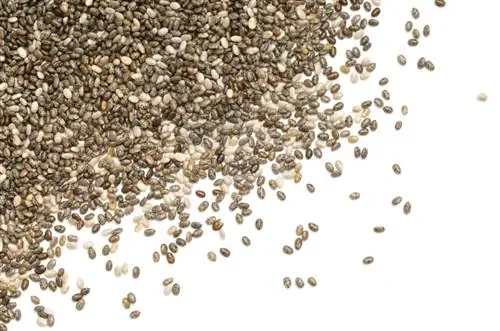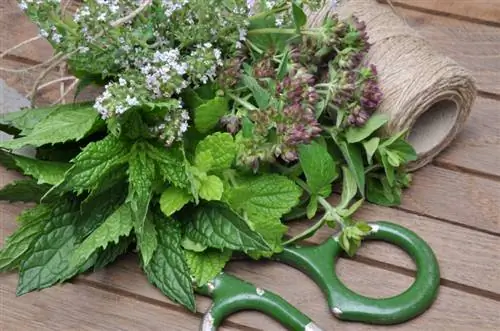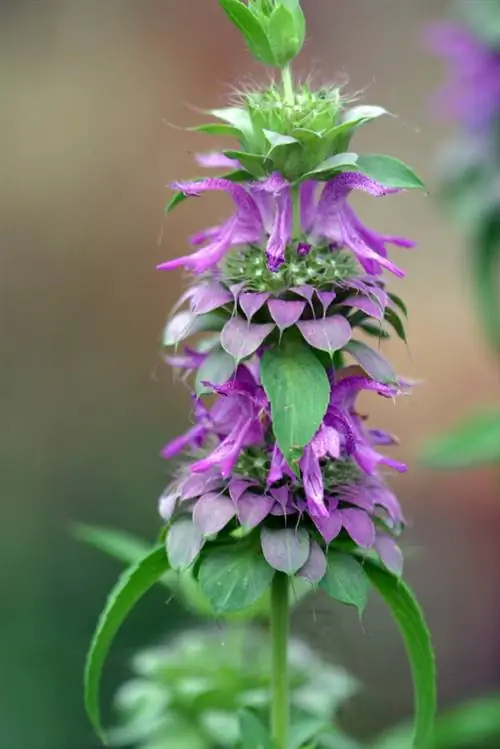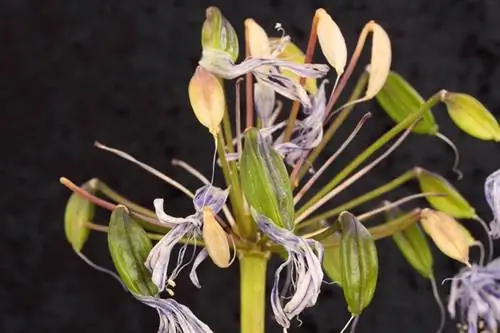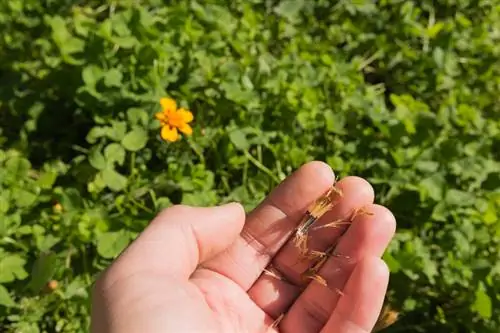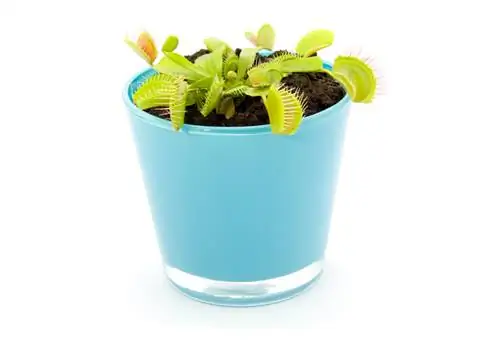- Author admin leonars@hobbygardeners.com.
- Public 2023-12-16 16:46.
- Last modified 2025-06-01 06:02.
The special appeal of hobby gardening is witnessing plant growth from the earliest stage. This includes harvesting seeds yourself and growing them by sowing. You can find out how it works with lemon balm here.
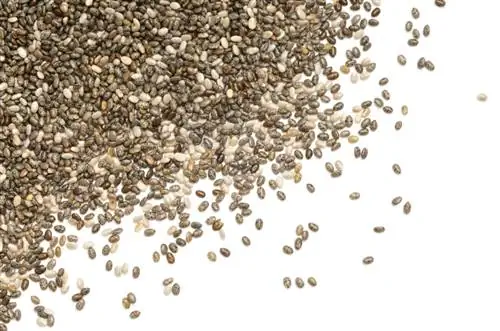
How do you harvest and store lemon balm seeds?
To successfully harvest lemon balm seeds, select brown seed pods, carefully open them and remove the seeds. Dry them on kitchen paper for a few days and then store them in a dark and cool place in a screw-top jar with absorbent paper. The seeds last up to three years.
Drought is the top priority when harvesting seeds
A lemon balm forms its seeds in 2 millimeter small hermitages. This is a decomposing fruit, typical of mint family. The seeds inside are only ripe when the hermitage turns brown. It should not have rained in the days before the seed harvest because wet seeds mold more quickly. How to do it right:
- pick off the brown seed pods
- open with a knife or fingers
- take out the seeds and dry them on kitchen paper for a few days
The seeds are stored in a jar with a screw cap until they are sown. Add a piece of paper to absorb any remaining moisture. Stored in a cool, dark place, the seeds will last for over 3 years. Don't forget the label.
Professional preparation boosts the mood to germinate - this is how it works
Lemon balm seeds are tricky when it comes to their germination behavior. This shortcoming becomes more noticeable when sowing directly than when growing behind glass. Germination rates well below 50 percent are not uncommon, even in perfectly prepared beds. With the following pretreatment you can noticeably improve the germination mood of seeds:
- Pre-soak seeds on moistened filter paper for 18-24 hours
- alternatively soak in a water bath, aerated by an aquarium pump
- sprinkle the sticky seed with talcum powder from the drugstore
At this point you can finish the pretreatment by drying the seeds lukewarm with a hairdryer until they are ready to be scattered. If you want to be on the safe side, put the moist seeds in a plastic bag. This goes in the vegetable compartment of the fridge for a week. Although the seeds of lemon balm are not cold germinators, this stratification nevertheless contributes to hardening.
Tips & Tricks
The uncertainties of sowing directly into the bed are not only reduced through perfect pre-treatment. Experienced amateur gardeners sow lemon balm in August or September. There is no harvest in the same year, but in return, first-class established young plants start the next season from April.

